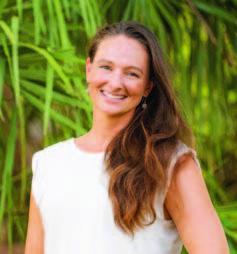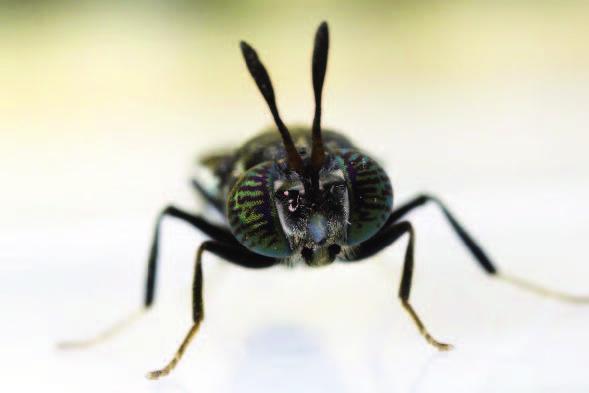2021 - WASTE NOT
I have a bit of advice for anyone contemplating a job in agriculture, but with no experience – just give it a go. People in the industry do not see inexperience as a barrier if you have an open mind and are willing to learn. You never know where it will take you and what opportunities await you. There is an amazing array of diverse and innovative roles in agriculture. My journey from Sydneysider to station-hand to fly-farmer is a prime example.
I grew up in inner Sydney. After university, I wanted to experience something different so, I sought work in New Zealand, Tasmania and the Northern Territory. I was offered a research assistant job in Darwin and as it turns out I am much better suited to the warmth of the north than the cold. Within a few months I could not imagine a return to a suburban Sydney life.
A few intrepid motorbike trips across the Kimberley and from Darwin back to Sydney had me yearning to live and work even more remotely so I began applying for work on cattle stations. My CV was not great – in my mid 20s with absolutely no relevant life or work experience, but thankfully, someone took a chance on me, and I was offered a job on a station in the Gulf of Carpentaria. It was a tough first year. I was useless and had a lot to learn but thankfully my boss and most of the crew were good humoured and helped me along.
Across nearly a decade working in beef cattle production, I was never once made to feel I did not belong or that I could not have a crack at something due to either my inexperience or gender. I found that if my attitude was right, and I was willing to learn, there was always someone ready to teach me. The hardest part wasn’t the flies, dust and long-hours. It was learning to leave your ego at the door, be honest, up-front when you’ve made mistakes and having the humility to take advice and lessons from others (even when they were years younger, which was often the case for me). This experience gave me an empathetic edge when I eventually became the person training others.
Working in agriculture gave me some amazing experiences and opportunities. I saw beautiful sunsets and sunrises in stunning remote locations and spent countless nights in a swag under the stars. The raw beauty of our Australian landscapes still takes my breath away. I learnt to ride horses and work cattle, my ‘book-smarts’ became complimented with practical and problem-solving skills. Finally, it taught me to have determination and grit and that sometimes, you have to make your own opportunities.
After many years working in beef cattle production, I was looking for an opportunity to move into a role that focused on sustainable agriculture, but I wanted to remain in the Kimberley. I went back to study and completed a Graduate Certificate in Animal Science. It was by pure chance that I came across Black Soldier Fly (BSF) farming. Its ability to provide a solution to food waste whilst providing sustainable feed ingredients instantly struck a chord with me. I knew I had to get involved with this innovative form of farming.
In summary, BSF are a non-pest, naturalised, tropical species of fly. They only feed whilst in their larval stage, and are voracious consumers of a wide-range of food wastes, including ‘problematic’ wastes such as meat, dairy, citrus, manures etc. The food waste is bio-converted into larval biomass, which is about 40% protein and 30% fat. The larval biomass can be processed into high-value protein and fat feed ingredients that can be used in aquaculture and poultry diets. Another by-product is a nutrient balanced organic fertilizer. It’s a circular economy waste solution that works so well, because it is something that nature has refined over millennia.
Insects are nature’s nutrient recyclers, and now we’re just trying to do it on an industrial level to deal with the industrial volume of food waste we produce.
With Broome’s tropical climate supplying the perfect conditions to breed the flies, and the tourism industry generating plenty of food waste, I could see there was an opportunity to establish a BSF industry in the north-west. I’m very enthusiastic about the environmental and economic opportunities it can bring to the region. Landfilling organic waste is problematic as it reduces landfill capacity, generates methane and contaminating leachate and represents a loss of valuable nutrients and organic matter. More than that, it is also a lost opportunity for job creation, industry diversification, and economic development. My vision is ‘organic waste management that builds resilient regional communities, not landfill’. I don’t see it as food waste, but as a wasted resource and wasted opportunity. That’s why I named my business ‘Waste Not’ – as it isn’t waste and shouldn’t be ‘wasted’.
For further information you can look up the Waste Not Food Recycling Facebook page and go to the www.wastenofoodrecycling.com.au


